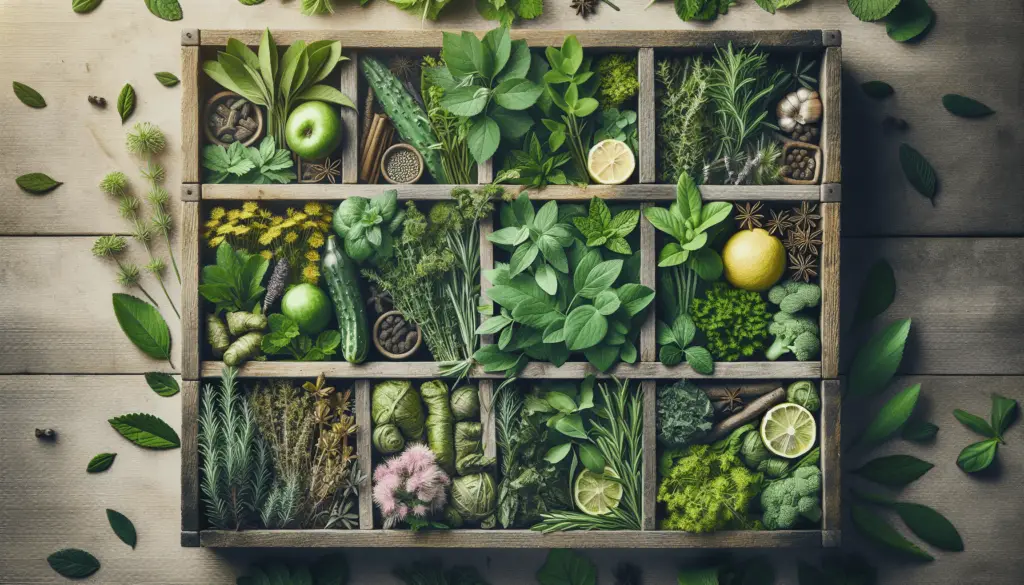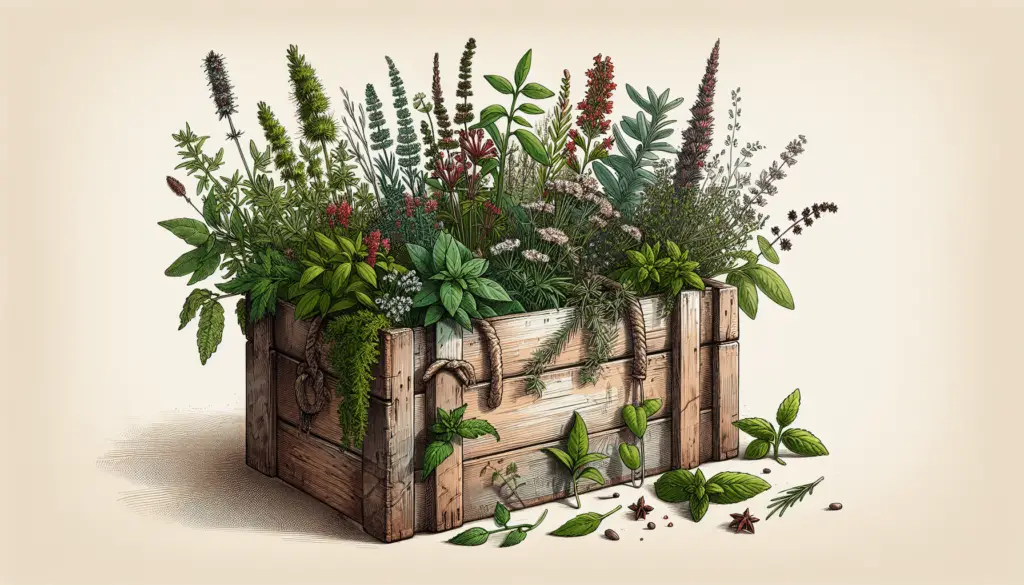Are You Prepared for Medical Emergencies?
If you’re someone who prefers to be prepared for anything life might throw your way, then having a solid knowledge of medicinal plants and herbs is essential. Whether you’re facing a minor cut or a more serious health issue, knowing which plants and herbs can help could make all the difference.
Knowing Your Medicinal Plants And Herbs
Let’s start by understanding the basic difference between medicinal plants and herbs. Medicinal plants are plants that have been traditionally used for their healing properties, while herbs are typically plants used for flavoring or culinary purposes that also have medicinal properties. By getting familiar with a range of medicinal plants and herbs, you can be better equipped to handle medical issues without always having to rely on modern medicine.

Building Your Medicinal Plants and Herbs Repertoire
When it comes to creating your own stash of medicinal plants and herbs, it’s important to start with the basics. Begin by learning about some of the most common and useful plants and herbs that you can easily grow or forage for in your local area. Understanding the properties and uses of each plant will help you build a well-rounded knowledge base that will serve you well in times of need.
Common Medicinal Plants and Herbs to Start With
- Aloe Vera: Known for its soothing properties, aloe vera is often used to treat minor burns, cuts, and skin irritations.
- Garlic: Not just a flavorful herb, garlic is also said to have antimicrobial and antifungal properties that can help boost your immune system.
- Chamomile: A calming herb that is often used to treat anxiety, insomnia, and digestive issues.
- Echinacea: Known for its immune-boosting properties, echinacea is commonly used to help fight off colds and flu.
By starting with these common plants and herbs, you can begin to build a solid foundation for your medicinal garden or foraging practices.
Creating Your Medicinal Plants Garden
If you have the space and resources, consider creating a dedicated medicinal plants garden. This will allow you to have easy access to fresh plants whenever you need them. Choose a sunny spot with well-draining soil and start planting a variety of medicinal plants and herbs. Don’t forget to research each plant’s specific growing requirements to ensure they thrive in your garden.
Harvesting and Storing Medicinal Plants and Herbs
Once you’ve grown or foraged for your medicinal plants and herbs, it’s important to know how to properly harvest and store them to preserve their potency. Different plants and herbs require different harvesting methods, so be sure to do your research before getting started.
Harvesting Tips for Medicinal Plants and Herbs
- Timing: Harvest plants at the right time of day (usually early in the morning) and during the right season for optimal potency.
- Technique: Use clean, sharp tools to cut or pick plants, being careful not to damage the plant in the process.
- Drying: Most medicinal plants and herbs need to be dried before storing. Hang them in a cool, dry place with good airflow until they are completely dry.
- Storage: Store dried plants in airtight containers in a cool, dark place to protect them from moisture and light.
By following these harvesting and storing tips, you can ensure that your medicinal plants and herbs retain their healing properties for when you need them most.

Creating Herbal Remedies
Now that you have a good supply of medicinal plants and herbs on hand, it’s time to start creating your own herbal remedies. Whether you’re dealing with a minor ailment or a more serious health issue, there are plenty of remedies you can make at home using simple ingredients from your garden or foraging trips.
Basic Herbal Remedies to Get You Started
- Infusions: Infusing herbs in hot water to create teas is one of the simplest ways to enjoy their medicinal benefits.
- Salves: Mixing herbs with oils or beeswax can create healing salves that can be applied to the skin for various ailments.
- Tinctures: Tinctures are alcohol-based extracts of herbs that can be taken orally to treat a wide range of health issues.
- Poultices: Poultices are made by crushing fresh or dried herbs and applying them directly to the skin to alleviate inflammation or pain.
Experiment with different recipes and methods to find what works best for you. Keep a record of what you create and how it helps you so you can easily replicate successful remedies in the future.
Safety Considerations
While herbal remedies can be incredibly effective, it’s important to remember that not all plants and herbs are safe for consumption or external use. Always do thorough research before using a new plant or herb, and start with small doses to see how your body reacts. If you have any underlying health conditions or are pregnant or nursing, consult with a healthcare professional before using herbal remedies.
Dealing with Common Ailments
Now that you’re equipped with a solid knowledge of medicinal plants and herbs, let’s take a look at how you can use them to tackle some common ailments. From headaches to digestive issues, there are plenty of ways you can turn to natural remedies to ease your symptoms.
Headaches
- Peppermint: A few drops of peppermint essential oil rubbed on your temples can help relieve headache pain.
- Willow Bark: Used for centuries as a natural pain reliever, willow bark can help ease headaches caused by tension or inflammation.
Digestive Issues
- Ginger: Drinking ginger tea or chewing on a small piece of fresh ginger can help alleviate symptoms of indigestion or nausea.
- Mint: Peppermint or spearmint teas are known for their ability to calm the digestive system and ease stomach discomfort.
Stress and Anxiety
- Lavender: Inhaling the scent of lavender essential oil or using it in a diffuser can help promote relaxation and reduce feelings of stress and anxiety.
- Passionflower: A calming herb that can help reduce anxiety and promote restful sleep when taken as a tea or tincture.
By incorporating these natural remedies into your routine, you can take a more holistic approach to managing your health and well-being. Remember to listen to your body and adjust your treatments as needed based on how you feel.
Final Thoughts
Having a solid understanding of medicinal plants and herbs is a valuable skill that can serve you well in times of need. By building your knowledge base, creating your own herbal remedies, and using natural treatments for common ailments, you can take control of your health and well-being in a more natural and sustainable way. So start exploring the world of medicinal plants and herbs today, and see how they can enhance your life and health in unexpected ways!
